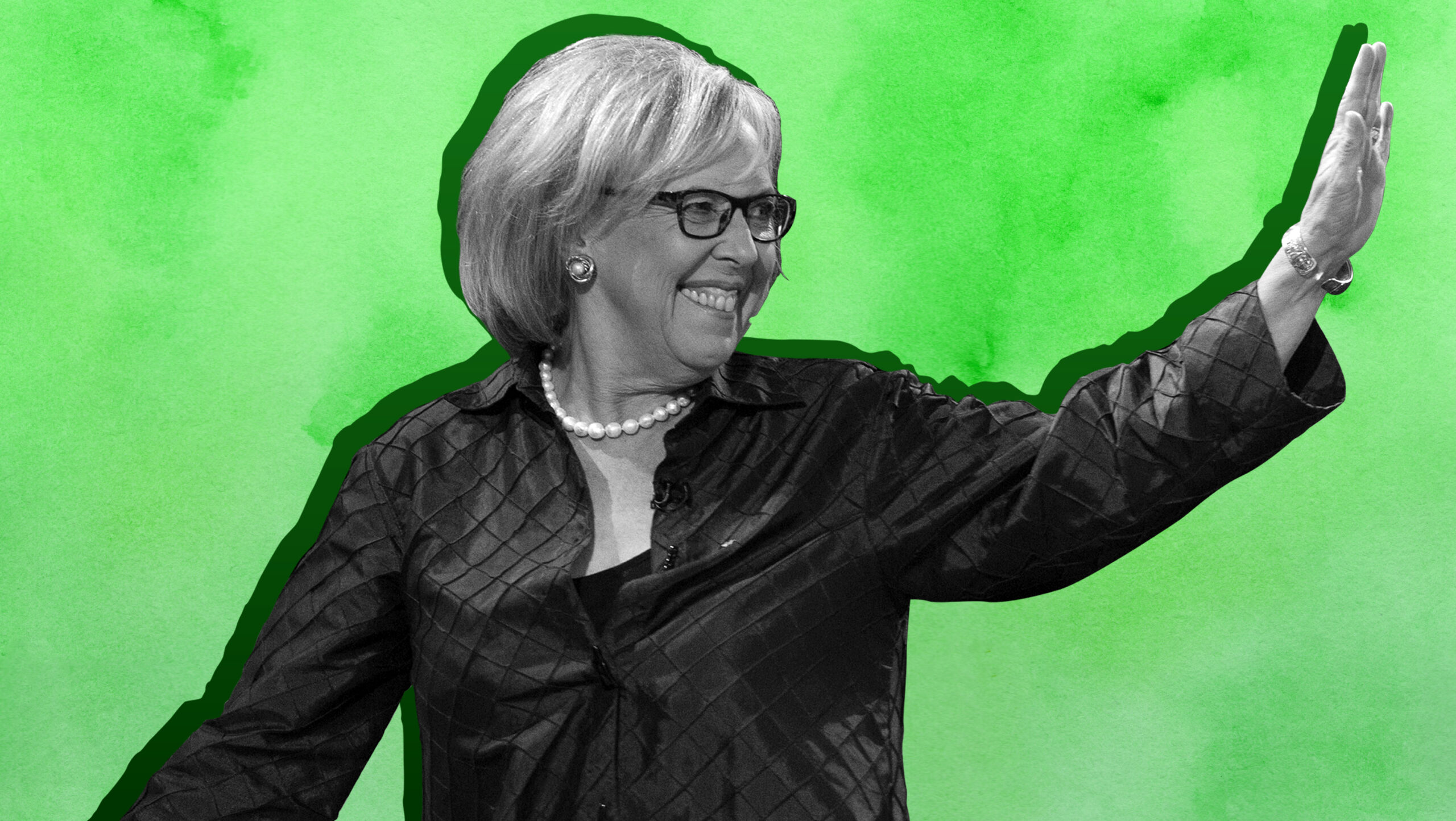Walking along Fredericton’s tree-lined streets in early October, any one of which would make a beautiful backdrop for a Thanksgiving card, there is still a lot of unseasonable green on the ground: Green signs. It’s election time, and Fredericton voters are in a toss up between the Liberals, Conservatives and Greens. Noticeably absent are the New Democrats.
So, where is the NDP? Ask local queer people, and the answer is simple: Nowhere to be seen.
Ridings in New Brunswick, like many other parts of the country, predictably support Liberal or Conservative candidates. In the 2015 federal election, all 10 of the province’s seats went to the Liberals, with the Conservatives winning 25.4 percent of the vote to the Liberals’ 51.6. In other words, the old flip-flop carried on. Meanwhile, the NDP garnered 18.4 percent of the vote, while the Greens won less than five percent.
For decades, the NDP has been the default vote for many queer Canadians. As Athabasca University assistant professor Alexa DeGagne explains in the book Queering Representation: LGBTQ People and Electoral Politics in Canada, queer folks in the 1970s and 1980s developed a relationship with the NDP as the party aligned itself with other social movements, like the labour movement and second-wave feminists. The party also made efforts, both provincially and federally, to include underrepresented groups like gays and lesbians in the 1980s. And across the country—excluding Quebec—anywhere from 30 to 50 percent of lesbian, gay and bisexual voters have supported the federal NDP since 2006.
There aren’t statistics on how LGBTQ2 people vote from province-to-province. But anecdotally, the NDP acts as kind of sanctuary party in New Brunswick—providing an outlet to air queer issues but rarely gaining access to power. Throughout the 1990s and into the 2000s, for instance, Elizabeth Weir was the only provincial NDP MLA to win office, and she was a firm advocate for queer rights; she remained the sole NDP MLA throughout her long career until 2005. Yvon Godin similarly advocated for LGBTQ2 folks until his retirement in 2015.
I grew up in N.B. and lived there until my late 20s. I always voted NDP, with the belief that even one vote against the eternal game of catch between the Liberals and the Tories was a vote for progress.
Not anymore. In early September, a federal spokesperson for the NDP in N.B. announced that 14 NDP candidates (and party members) were leaving the party for the Greens. The move was attributed to the fact that NDP leader Jagmeet Singh had only made his first visit to the province in late September, full of apologies for not visiting before, and a reassurance that he takes the province and region seriously. Many New Brunswickers read his shrugging admission—“my bad” was his answer when asked why he had not been to the province since being elected NDP leader in 2017—as diminishing and too little too late. But accusations abounded that the defection was also in part motivated by racism—that candidates were not willing to work for a Sikh leader.
Days later, several NDPers announced that they were not, in fact, leaving the party, but it nevertheless stalled the process of finding federal candidates for a month. The party had to play catch-up, with candidates being nominated as late as last month—some to replace candidates who went Green, and some to fill spots that had remained empty from the start of the campaign. It is only now, on election day, that all 10 federal ridings have NDP candidates.
While the other party leaders have campaigned and visited N.B., and Atlantic Canada more broadly, the Greens have been eating up traditional NDP support ever since.
And N.B. has unique concerns for queer people. The possible closure of Clinic 554, a private clinic that provides reproductive care and abortion access as well as trans and queer health care for more than 3,000 LGBTQ2 people in the province, looms large in the minds of New Brunswickers. As does the fact that conversion therapy is still not wholly banned in the province. And New Brunswickers in general worry about the environment—especially in Fredericton and other areas now prone to disastrous flooding due to climate change.
Dusty Green, a local activist in Fredericton, notes that while many queers vote Liberal, and the queer-NDP alliance has never been fixed in stone, “we’re also paying attention to what’s happening to other provinces under Conservative rule, and we’re not keen to see those fumbles played out on a national scale.”
The Greens, he says, have done well provincially—three Green MLAs were elected in the last provincial election—and “the party has clout here. I’m tired of the [Liberal/Conservative] false dichotomy with NDP out of the picture.” Currently, the party is polling around five percent in N.B. “It was time to take a chance and actually vote for a party that I believe in, instead of the lesser of two evils,” he adds.
Green thinks the party has been able to attract voters on the left precisely because the local NDP machine has barely been operational. He describes their federal campaign “an afterthought,” noting that several NDP candidates were nominated only shortly after Singh apologized for not visiting the province prior to the election.
And the emotional toll of this election is present in his thoughts, despite whatever party he chooses to support. “For politically engaged young queers, this is a thankless, exhausting time,” Green says. “It’s a time when politicians either completely ignore us, or tug at our heartstrings, promising that this time things will get better for queers, or that under any party but theirs, queer rights will be stripped away.”
Activist M.J. Chandler reminds me that the NDP “fell” in N.B. after the 2014 provincial election, when the leader of the provincial party, Dominic Cardy, moved to the provincial Progressive Conservatives. The Greens, Chandler says, have picked up the slack.
“The federal Green Party candidate was present during an LGBTQ+ panel held at the Beaverbrook Art gallery in September. At that time there wasn’t even an NDP candidate who had been declared for the riding,” Chandler says. “I believe that queer people also care deeply about our world and our environment. Many queer people in New Brunswick are leading action against climate change. The collaborative spirit, need for respect and attitude that the status quo is not good enough that the Green Party evokes appeal to queer people.”
When I told Chandler that their description of the Green party sounds like the traditional, and still typical description of an NDP candidate, they recounted their own voting history: “I was a strong NDP supporter when I reached voting age, and I come from a family of very strong NDP supporters.” That changed, they say, when Clinic 554 shuttered earlier this month. “[Elizabeth May], the leader of the Green Party, was the first to visit and lend support against the closure, which speaks volumes,” Chandler says. In an interview with Xtra, May has also promised that a Green government would condemn and ban conversion therapy and end the blood ban against men who have sex with men.
Filmmaker Robert Gray is also blunt in his assessment of the NDP’s chances with queer N.B. voters. “The NDP doesn’t really exist in N.B.,” he says. “I love that our politicians are showing up to Pride parades, but I am of the belief that the parade should not be their only show of action. Show us your resumé. And right now, particularly with Clinic 554 closing, the Greens have been doing something.”
But, like many queers of my generation, Gray is still fond of the NDP. “The Liberals definitely seem like the Saturday night party boys who barely look at you, and the NDP seem more like the Sunday night lesbian potluck where you are actually talking and there is less elitism,” he says. “I really hope they make a mark this election. They just won’t be doing in New Brunswick. Yet.”
But Luke Randall, a local business owner and one-time Conservative supporter (in order to vote for progressive candidates in the last Conservative leadership contest), has a very different take on the situation. Noting first that queer voters are not a monolith, he says bluntly of Singh’s (and by default the NDP’s) absence from the province: “I don’t care.”
“Mr. Singh had plenty to do when he became leader and I don’t hold not visiting N.B. against him,” he says. “On the other hand, May has been here many times, and that helps.”
Asked why he now supports the Greens, he lists the climate emergency as his first priority.
“There are always a number of issues for voters at play. Queer issues are one of them and are important to me,” Randall says. “But queer issues will be very hard to move on if climate changes push us into an economy of scarcity.”


 Why you can trust Xtra
Why you can trust Xtra


